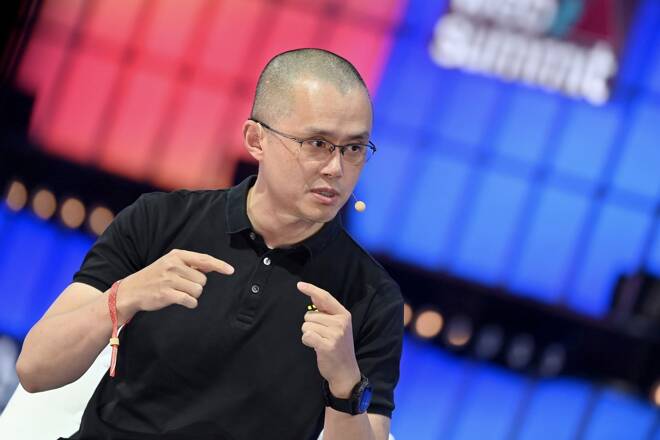Advertisement
Advertisement
Binance Founder Changpeng Zhao Bags 4-Month Jail Sentence
By:
Key Points:
- Changpeng Zhao, the former chief executive of Binance, was sentenced on Tuesday to four months in prison after pleading guilty
- The sentence was imposed by United States District Judge Richard Jones in Seattle.
- Binance sources say the company has made considerable compliance enhancements to avert recurrence of past regulatory infractions.
Changpeng Zhao, the Binance Founder/ ex-CEO, was sentenced on Tuesday, April 30 to four months in prison after pleading guilty to violating US money-laundering laws.
The sentence was imposed by United States District Judge Richard Jones in Seattle, who rejected prosecutors’ request that the 47-year-old Zhao serve a three-year term.
Zhao’s sentencing marks the conclusion of the process, with Judge Richard Jones ruling that the crypto entrepreneur—estimated to be worth around $43 billion, making him the richest inmate to serve time in the U.S.—must pay a $50 million personal fine in addition to his time behind bars.
The rise and fall of Changpeng Zhao
Zhao founded Binance in 2017, and it became the largest crypto exchange in just six months. Amid its meteoric growth, however, Binance struggled to implement effective “know your customer” and anti–money-laundering regimes—an embarrassing reality laid bare in complaints filed by the CFTC and Securities and Exchange Commission in 2023, including internal messages revealing that executives were aware of widespread compliance violations.
Notably, the settlement did not include fraud charges, and the SEC did not participate in the joint action. The agency continues to litigate its case against Binance in the U.S. District Court for the District of Columbia, where a judge recently held a hearing on Binance’s motion to dismiss the lawsuit.
The lack of more serious charges, along with the relatively light slap on the wrist for Zhao, led watchdog groups such as Better Markets to argue the settlement represented a “miscarriage of justice.”
“The punishment imposed simply does not fit the crime,” Better Markets president and CEO Dennis Kelleher said in a statement shared with Fortune. “In fact, the settlement is pathetic compared to the crime wave and the wealth accumulated from that criminal conduct.”
Looking Towards an Uncertain Future
While Zhao’s plea deal laid out a potential sentence of 18 months in prison, prosecutors filed a memo last week requesting he serve 36 months, citing the “magnitude of Zhao’s willful violation of U.S. law and its consequences” and arguing that it would “not just send a message to Zhao but also to the world.”
In a concurrent filing, Zhao’s lawyers wrote that he “deeply regrets his offense” and asked for no time in prison, suggesting instead he be sentenced to house arrest. The request included letters from more than 160 friends and business associates, including members of the ruling families in the UAE and former U.S. ambassador to China Max Baucus, a former U.S. senator who serves on Binance’s advisory board.
Ultimately, Jones sided in part with Zhao’s team during Tuesday’s hearing, arguing against the prosecution’s proposed extended sentence given the lack of evidence that Zhao knew of illegal activity.
With Zhao stepping down as Binance CEO as part of his sentencing agreement, his exchange’s future looked shaky as its market share tumbled toward the end of 2023. Under new CEO Richard Teng, a former regulator in the UAE and Singapore, the crypto giant has regained its dominance as crypto markets boomed following the January approval of Bitcoin ETFs in the U.S.
“We have made considerable compliance enhancements, including substantially updating our KYC [know your customer] protocols, expanding our in-house anti–money-laundering detection and analytics capabilities, and hiring key compliance personnel with experience at the highest levels of law enforcement and traditional finance,”
-Binance spokesperson.
While Zhao is no longer involved in the day-to-day of Binance, he still maintains prodigious equity in the firm, which will ensure his status as one of the richest people in the world.
About the Author
Ibrahim Ajibadeauthor
Ibrahim Ajibade Ademolawa is a seasoned research analyst with a background in Commercial Banking and Web3 startups, specializing in DeFi and TradFi analysis. He holds a B.A. in Economics and is pursuing an MSc in Blockchain.
Advertisement
